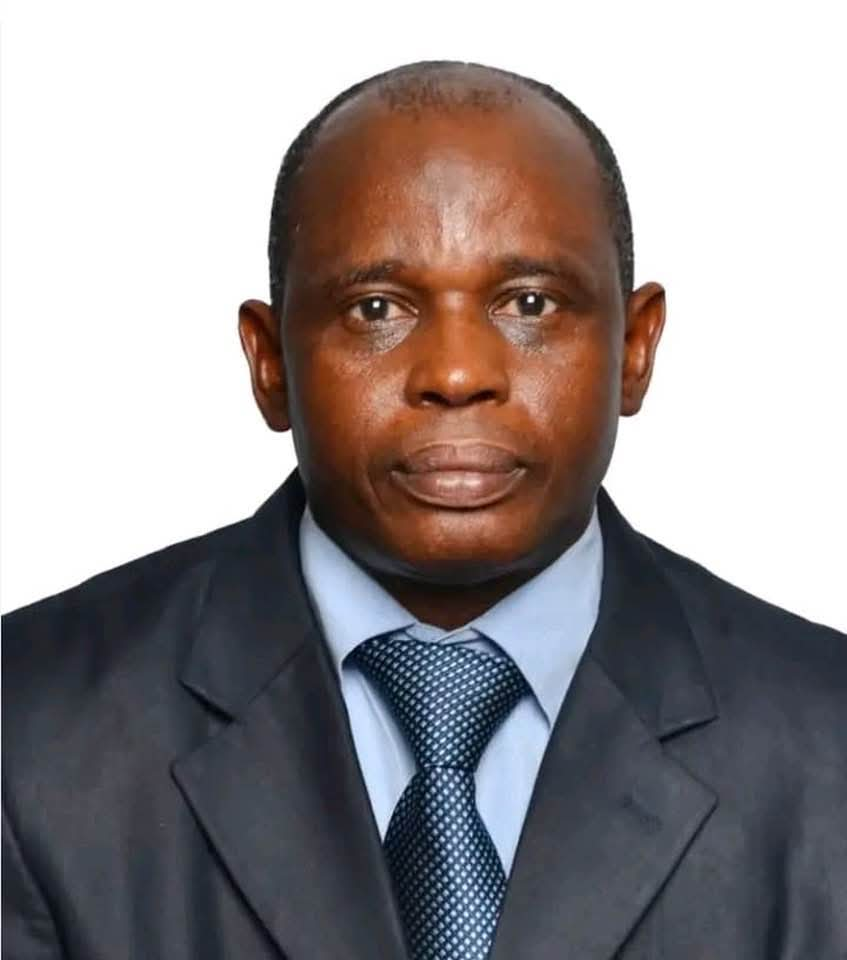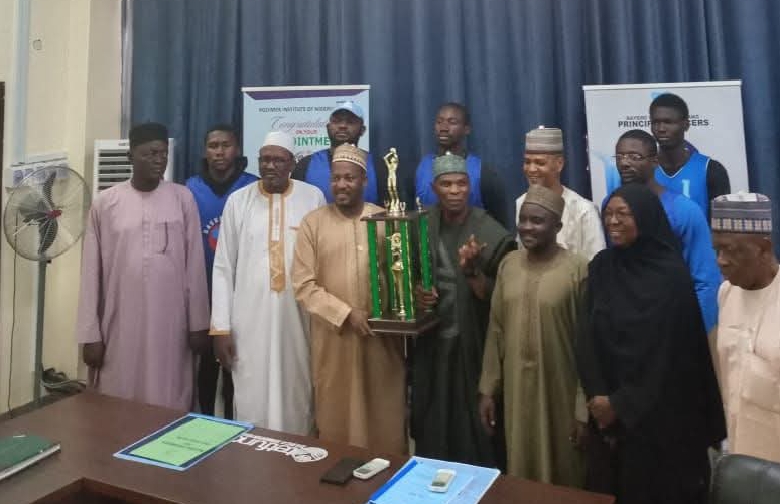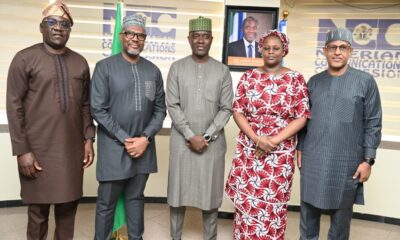Headlines
We must utilize the power of ICT to contain insurgency–Dambatta

Nasiru Yusuf
The Executive Vice Chairman (EVC) of the Nigerian Communications Commission (NCC), Prof. Umar Dambatta has said that Nigeria must utilize and appropriately deploy telecoms and ICT resources in the fight against insurgency and to contain other emergencies.
He affirmed that empirical knowledge of what ICT can do in tackling numerous challenges explained the commission’s insistence on compliance by all stakeholders to the guidelines governing SIM registration, and why NCC had been upbeat in getting the Emergency Communication Centres (ECC) ready all over the country as directed by the Federal Government.
Prof. Dambatta stated this on Wednesday at the Conference Room of NCC Head Office during the induction of the commission into the membership of Forum of Spokespersons of Security and Response Agencies (FOSSRA).
The NCC Vice Chairman was represented at the forum by Bassey Uket, a Principal Manager at the Commission’s Special Duties Department.

Mr Dambatta recalled the collaboration between NCC and the security and other emergency response agencies especially at the ECCs and suggest that many of the multi-faceted challenges can be addressed with scaling up the degree of deployment of electronic strategies.
To underscore the imperative of electronic and digital communication systems in managing the nation’s security challenges, Mr Dambatta stated that “as we are addressing the situation in one part of the country, you find escalation in another part of the country.”
He also gave an example of the 112 Emergency Communication Numbers, which are routed to the ECCs, as “a practical implementation of a security system that is bringing succour to citizens in distress”.
The NCC Chief Executive added that he was gratified that there is an increasing “interface between citizens who are in distressed security situation and virtually all security and other emergency response agencies connected to it”.
Mr Dambatta described the ECCs as a well-conceived project. It is a project that has enhanced the capacity of agencies in the security governance sector to manage crises. He informed the audience that the Centres are well-equipped to address the purpose for which they were established.
He said 18 of the Centres, which are located in state capitals, have been completed and he assured that with support of the Federal Government “we are not going to stop. We would like to express our commitment to continue with the remaining 18. We would not rest on our oars until all other 18 are fully functional because the ECC have started attracting attention” and are quite central to the management of security in the country.
He emphasised that the ECCs have become a success story today because of the commitment of the Federal Government and the culture of dedication to continuity of strategic national projects by successive leadership of the Commission.
Earlier, Oluwatoyin Asaju, Director, Special Duties at NCC said FOSSRA, which was established 6 years ago by the Office of the National Security Adviser (ONSA), has performed well in coordinating public information activities of security and emergency response agencies and has helped to improve inter-agency collaboration.
He said the induction of NCC into the forum is a testimony to the Commission’s strides in this regard and also the visionary leadership of the Prof. Danbatta.
He recalled the nature of operation and kind of facilities at the ECCs and urged Nigerians to use the Toll-Free 3-Digit Emergency Communication Numbers 112 to get help in times of security challenges.
Brigadier Onyema Nwachukwu, Director, Defence Information and Chairman of FOSSRA told the participants at the meeting that crisis is not peculiar to Nigeria and the present escalating trend speaks to emergent global culture where non-state actors resort to violence to express grievances.
He said agencies in the security sector are working all-round-the-clock to improve the nation’s security situation.
The FOSSRA’s role according to him is to bring the public to speed on the activities of the security forces. He affirmed that other issues needed to be addressed for the physical security provided by the armed forces to have better impact.
“One of these issues is national mobilisation of the mass media around the issues of security. Therefore, developing a national networking strategy of all stakeholders is important to address other challenges just as the challenge of inter-agency cooperation and collaboration among the security forces had been addressed.”
Air Commodore Yusuf Anas (rtd), the Executive Secretary of Crisis Communication Centre (CCC), also spoke about the efforts of FOSSRA in rallying information and communication stakeholders to ensure appropriate crisis communication management.
Commodore Anas expressed the gratitude of the Centre and other partners to NCC for the vital roles the Commission had played in enhancing the management of the Nation’s security communication programmes.

Headlines
Gov. Yusuf mourns former Kano finance commissioner, Prof. Dandago

Nasiru Yusuf Ibrahim
Governor Abba Kabir Yusuf has expressed deep sorrow over the death of former Kano State Commissioner of Finance and renowned academic, Professor Kabiru Isa Dandago.

KANO FOCUS reports that the governor’s reaction was contained in a statement issued on Wednesday by his spokesperson, Sunusi Bature Dawakin Tofa, Director General, Media and Publicity, Government House, Kano.
Governor Yusuf described the late Prof. Dandago as a dedicated public servant and accomplished scholar whose contributions to education and governance left lasting footprints in Kano State.
He noted that the former finance commissioner served the state with integrity and commitment and was widely respected for his professionalism, humility and passion for knowledge.
According to the governor, Kano State has lost a valuable son whose experience and wisdom greatly enriched both public service and the academic community.
Governor Yusuf extended his heartfelt condolences to the family of the deceased, the academic community and the people of Kano State over what he described as an irreparable loss.
He prayed that Almighty Allah forgives the shortcomings of the late Prof. Dandago, grants him Aljannatul Firdaus and gives his family and loved ones the fortitude to bear the loss.

Headlines
GATCOSA President, Prof. Kabiru Isa Dandago is dead

Nasiru Yusuf Ibrahim
The National President of the Government Arabic Teachers College Gwale Old Students Association (GATCOSA), Professor Kabiru Isa Dandago, is dead.
KANO FOCUS reports that Prof. Dandago, a renowned Professor of Accountancy at Bayero University Kano, died on Wednesday evening. His passing has thrown the academic community and associates into mourning.
In a message shared on GATCOSA’s WhatsApp platform, a Director at the Kano State Ministry of Higher Education, Alhaji Nura Dandago, announced that the funeral prayer for the late professor would be held on Thursday at 9:00 a.m. at his residence in Rijiyar Zaki Quarters, Kano.

Until his death, Prof. Dandago served as the National President of GATCOSA and was widely respected for his contributions to education and public service. He previously served as Commissioner for Finance in Kano State during the administration of former Governor Abdullahi Umar Ganduje.
Just last Saturday, the late academic presented a paper on economic challenges in Northern Nigeria at a Ramadan Lecture organised by the Islamic Forum of Nigeria, where he spoke passionately about strategies for economic reform and regional development.
Colleagues and admirers described Prof. Dandago as a dedicated scholar and public servant who was deeply committed to building a prosperous and self-reliant nation. His death marks the end of a distinguished career in academia and public service.

Headlines
BUK clinches Northwest 3×3 basketball title at ABU Zaria

Nasiru Yusuf Ibrahim
The basketball team of Bayero University Kano (BUK) has emerged champions of the Northwest 3×3 Basketball Championship hosted by Ahmadu Bello University (ABU), Zaria.

KANO FOCUS reports that the victorious team presented the championship trophy to the Vice-Chancellor, Prof. Haruna Musa, following their impressive performance at the tournament, which featured six universities from across Northern Nigeria.
BUK went unbeaten throughout the competition, winning all six matches and sealing the title with a thrilling 20–18 victory over the host institution, ABU Zaria, in the final.
In the group stage, BUK recorded a 10–0 win against Northwest University, Kano, and defeated the Air Force Institute of Technology 33–20. The team also edged the Federal University of Education, Kano, 11–9, before securing another dominant 10–0 victory over the Federal University of Transportation, Daura. They capped their remarkable run with the narrow 20–18 triumph in the final.
The victory marks BUK’s second championship title in the history of the competition, reinforcing the university’s growing reputation in collegiate sports.
Receiving the team, the Vice-Chancellor congratulated the athletes for bringing pride to the institution and urged them to sustain and surpass their current achievements. He reaffirmed the management’s commitment to strengthening sports development in the university and pledged continued institutional and individual support for the players’ sporting careers.
The presentation ceremony concluded with the formal handover of the trophy and cash rewards to the athletes in recognition of their discipline, teamwork and excellence.



















